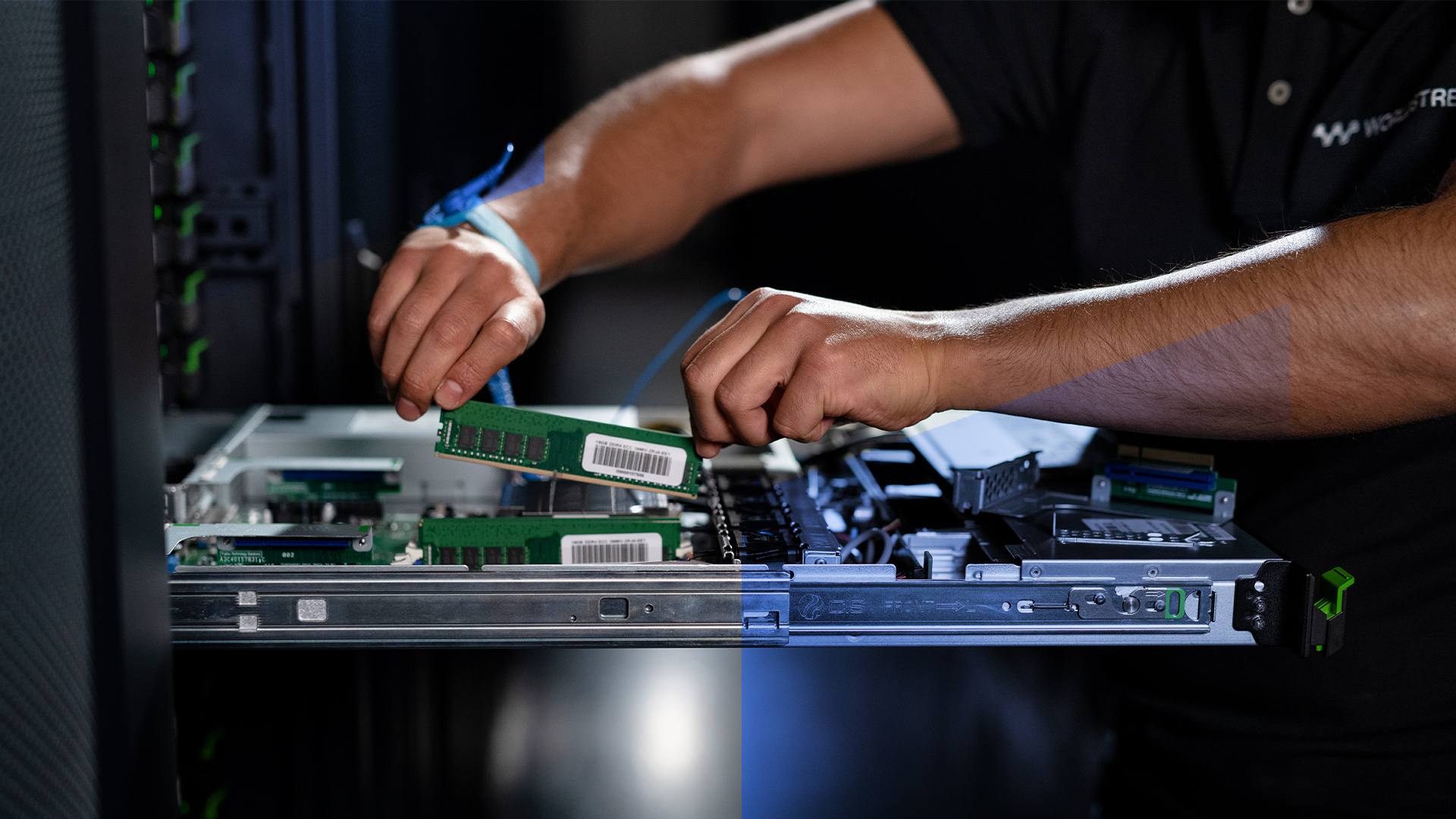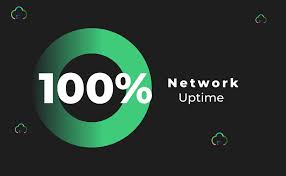New Site Promo! (1g on 10g 95 Percentile IP Transit - $250/m) (Available in any of our POPs)
Dedicated Server Hosting | Best Bare Metal Solutions for Your Site
Unlock unparalleled performance with our dedicated server hosting solutions. Experience speed, reliability, and scalability tailored for your website. Learn more about our dedicated servers!
Published on: 06 Sept 2024
Read time: 6

Best Dedicated Server Hosting: Top Bare Metal Solutions for Your Site
In today's digital landscape, having a reliable hosting solution is paramount for any website. Dedicated server hosting stands out as one of the best options for businesses seeking optimal performance, security, and control. This article will explore dedicated hosting services, their benefits, and how to choose the best dedicated server plan for your needs.
What is Dedicated Server Hosting?
Understanding Dedicated Hosting Service
Dedicated server hosting refers to a web hosting service where an entire physical server is allocated to a single client. This hosting option allows users to enjoy exclusive access to server resources, ensuring optimal performance and reliability. Unlike shared hosting or VPS hosting, dedicated hosting provides a dedicated IP address and full control over the server environment. This means you can customize server configuration and install any necessary software, making it an ideal solution for resource-intensive applications or websites with high traffic. With dedicated hosting, businesses can achieve unparalleled speed and security while tailoring their hosting environment to suit their specific needs.
Dedicated server hosting is particularly beneficial for businesses that require a stable and scalable web hosting solution. By utilizing a physical server solely for their operations, organizations can ensure seamless performance without the limitations associated with shared hosting environments. Additionally, dedicated servers offer enhanced security features, as clients are not sharing their server with potentially harmful sites. This level of security is crucial for e-commerce platforms and any business handling sensitive data. Furthermore, dedicated hosting allows for greater flexibility in terms of resource allocation, making it an attractive choice for growing companies.
Benefits of Using a Dedicated Server
Utilizing a dedicated server comes with numerous advantages, primarily centered around performance and security. One of the most significant benefits is the enhanced speed and reliability that dedicated servers offer, as all resources are dedicated to a single client. This ensures that websites can handle high traffic volumes without experiencing slowdowns or downtime. Additionally, dedicated servers provide a higher level of security since the server is not shared with other users, reducing the risk of cyber threats and data breaches. Businesses can implement their own security protocols and configurations, further safeguarding their sensitive information.
Another critical benefit of dedicated server hosting is the ability to customize server resources based on specific needs. Clients can select the amount of RAM, storage, and processing power required, ensuring that their server can handle application demands efficiently. Furthermore, dedicated hosting allows for complete control over the server's operating system, whether it be Linux or Windows server, making it easier to deploy applications that are optimized for a particular platform. This level of customization and control is crucial for organizations that require a tailored hosting environment to support their unique business operations.
How Does Dedicated Hosting Work?
Dedicated hosting works by providing a physical server that is entirely dedicated to one client, ensuring exclusive access to all server resources. When a client signs up for a dedicated hosting service, they typically select a hosting plan that outlines the specifications of the physical server, such as CPU power, RAM, and storage capacity. After the agreement is in place, the hosting provider sets up the server in their data center, and the client can access it through a control panel or remote desktop connection. This direct access allows clients to manage their dedicated server effectively, installing software and configuring settings as needed.
The operational framework of dedicated hosting enables clients to run their websites, applications, or databases with optimal efficiency. With root access, clients have the authority to configure the server environment according to their requirements, whether that involves installing custom applications or setting up firewall rules. This level of control is essential for organizations that may have specific compliance or security needs. Additionally, dedicated hosting providers often offer server management options, including monitoring and maintenance, ensuring that the server operates smoothly and securely at all times.
What to Look for in a Dedicated Host?
Key Features of Dedicated Hosting Services
When selecting a dedicated host, it is crucial to evaluate key features that can impact the overall performance and satisfaction with the hosting service. One of the primary aspects to consider is the level of server management offered by the hosting provider. Some providers offer fully managed services, which include ongoing support and maintenance, while others may provide only basic management tools. Understanding your organization's needs will help determine which type of service is most suitable. Additionally, consider the scalability options available; as your business grows, you may require additional server resources or configurations.
Another important feature to look for is the quality of customer support. A reliable hosting provider should offer 24/7 support through various channels, including phone, chat, and email. This accessibility ensures that any issues or questions can be addressed promptly, minimizing downtime and disruptions. Furthermore, evaluate the bandwidth and data transfer limits offered in the hosting packages. Adequate bandwidth is essential for accommodating traffic spikes and ensuring a smooth user experience. Lastly, consider the security features provided by the dedicated hosting service, including DDoS protection, firewalls, and regular backups, to safeguard your data from potential threats.
Choosing the Best Dedicated Server Plan
Selecting the best dedicated server plan requires careful consideration of your specific needs and requirements. Begin by assessing the resources your website or application will demand, such as CPU, RAM, and storage capacity. Different hosting providers offer various configurations and pricing models, so it's essential to compare hosting packages to find the one that aligns with your budget and resource needs. Additionally, consider whether you need a fully managed hosting solution or if you prefer to handle server management yourself. Fully managed options can provide peace of mind, especially for businesses without dedicated IT personnel.
Another factor to consider is the level of customization allowed in your chosen plan. Some hosting providers offer flexible server configuration options, allowing you to tailor the environment to meet specific requirements. For instance, if your application runs best on a particular operating system like Linux or Windows server, ensure that your hosting plan supports the platform of choice. Furthermore, pay attention to the availability of dedicated IP addresses, as these can enhance security and improve email deliverability. Evaluating these factors will enable you to choose the best dedicated server plan that fits your business's unique demands.
Importance of Server Management in Dedicated Hosting
Server management plays a vital role in maintaining the performance, security, and reliability of dedicated hosting services. Proper management ensures that resources are utilized efficiently, minimizing waste and maximizing performance. Many businesses opt for fully managed dedicated hosting solutions, which relieve them of the burdens associated with server management. This allows organizations to focus on their core operations while leaving technical maintenance to experts. Managed services typically include regular software updates, security patches, and performance monitoring, which are crucial for keeping the server running optimally.
An effective server management strategy also encompasses proactive monitoring and troubleshooting. Hosting providers should implement server monitoring tools to detect issues before they escalate into significant problems. This level of vigilance helps maintain uptime and provides a seamless experience for users. Furthermore, having a dedicated support team available to address any server issues or questions is essential for ensuring that clients have the assistance they need when required. In summary, investing in comprehensive server management is key to maximizing the benefits of dedicated server hosting and ensuring that your hosting environment remains secure and efficient.
What Are the Advantages of Fully Managed Dedicated Hosting?
Benefits of Fully Managed Dedicated Solutions
Fully managed dedicated hosting solutions offer a range of advantages that can significantly enhance the overall hosting experience. One of the primary benefits is the comprehensive support provided by the hosting provider. With fully managed services, clients can rely on expert assistance for server setup, configuration, and ongoing maintenance. This is particularly advantageous for businesses lacking in-house IT resources or technical expertise, as it allows them to leverage the provider's knowledge without having to hire additional staff. Fully managed hosting solutions also often include regular backups, ensuring that data is protected and recoverable in case of a disaster.
In addition to support and maintenance, fully managed dedicated solutions often come with enhanced security features. Hosting providers typically implement robust security measures, including firewalls, DDoS protection, and malware detection. This level of protection is crucial for businesses that handle sensitive customer information or operate e-commerce platforms. Furthermore, with fully managed services, clients can enjoy peace of mind, knowing that their server is being monitored around the clock for potential issues. This proactive approach to server management contributes to improved uptime and performance, allowing businesses to focus on growth and development rather than technical concerns.
How Fully Managed Hosting Enhances Your Experience
Fully managed hosting enhances the user experience by providing a seamless and stress-free environment for businesses to operate. With dedicated experts overseeing server management, clients can rest assured that their hosting environment is secure and optimized for performance. This allows businesses to allocate more resources to their core operations, such as customer service and product development, rather than worrying about server-related issues. Furthermore, managed hosting services often include performance optimization, ensuring that websites load quickly and run efficiently, which is crucial for retaining customers and maximizing conversions.
Server Monitoring and Support in Fully Managed Services
Server monitoring and support are critical components of fully managed dedicated hosting services. With round-the-clock monitoring, hosting providers can quickly detect and address potential issues, preventing downtime and ensuring optimal performance. This proactive approach to monitoring not only helps maintain server health but also enables clients to focus on their business operations without the worry of technical disruptions. Moreover, many fully managed services provide automated alerts and notifications for server performance metrics, allowing clients to stay informed about their server's status.
How to Customize Your Dedicated Server?
Understanding Server Configuration Options
Customizing a dedicated server begins with understanding the various server configuration options available to you. When selecting a dedicated hosting plan, clients can choose from a range of hardware specifications, including CPU type, amount of RAM, and storage capacity. This flexibility allows businesses to tailor their server environment to meet specific requirements, whether they need additional RAM for high-performance applications or larger storage for extensive databases. Additionally, clients can often select between different RAID configurations to balance performance and redundancy based on their needs.
Moreover, server configuration extends beyond hardware specifications. Clients can also customize their operating system, choosing between popular options such as Linux distributions or Windows server. This choice can significantly impact the server's performance and compatibility with various applications. With dedicated hosting, businesses have the freedom to install and configure the software that best suits their operational needs, whether it's a web server, database management system, or custom applications. By understanding and leveraging these configuration options, clients can create a dedicated server environment that is optimized for their unique business objectives.
Choosing the Right Operating System for Your Server
Choosing the right operating system for your dedicated server is a crucial decision that can influence the server's performance and compatibility with your applications. The two most common operating systems for dedicated servers are Linux and Windows server. Linux is known for its stability, flexibility, and security, making it a popular choice for developers and businesses that run web applications or services. With a wide range of distributions available, clients can select the version that best fits their technical requirements. On the other hand, Windows server is ideal for those who rely on Microsoft-based applications and services, offering seamless integration with other Microsoft products.
In addition to considering the type of applications you plan to run, it's also essential to evaluate your technical expertise when selecting an operating system. Linux may require a certain level of familiarity with command-line interfaces and server management, while Windows server may be more user-friendly for those accustomed to Microsoft environments. Ultimately, the right operating system choice should align with your business's operational needs and the skill set of your IT team. By carefully selecting the operating system, clients can maximize the performance and efficiency of their dedicated server, ensuring it supports their goals effectively.
Customizing Server Resources for Your Needs
Customizing server resources is an essential aspect of optimizing your dedicated server for your specific business needs. When setting up a dedicated server, clients can tailor the allocation of CPU, RAM, and storage based on the demands of their applications and website traffic. For instance, a high-traffic e-commerce site may require more RAM and processing power to ensure fast load times and smooth user experiences. Conversely, a small website may function adequately with a more modest configuration. Understanding your resource requirements allows you to make informed decisions when selecting a dedicated hosting plan.
In addition to CPU and RAM, clients should also consider storage options when customizing their server resources. Dedicated hosting providers often offer various storage solutions, including SSDs and traditional HDDs, each with its own performance characteristics. SSDs provide faster data access speeds, which can significantly enhance application responsiveness and overall server performance. Furthermore, clients can configure their storage using RAID for redundancy and performance optimization. By customizing server resources effectively, businesses can ensure that their dedicated server environment is well-suited to handle current and future demands, thereby enhancing operational efficiency.
What Are the Best Dedicated Server Hosting Providers?
Comparing Hosting Packages and Pricing
When searching for the best dedicated server hosting providers, it is essential to compare hosting packages and pricing to find the most suitable option for your needs. Different providers offer a variety of hosting plans with distinct features, server specifications, and pricing structures. When evaluating hosting packages, consider factors such as the amount of RAM, CPU power, storage capacity, and bandwidth included in each plan. It is also important to assess whether the provider offers fully managed services or if you will be responsible for server management.
Pricing is another critical aspect to examine when comparing dedicated server hosting options. While some providers may offer lower initial costs, it is vital to consider any additional fees for server management, data transfer, or technical support. Understanding the total cost of ownership will help you avoid unexpected expenses down the line. Additionally, look for providers who offer flexible pricing tiers, allowing you to scale your resources as your business grows without incurring prohibitively high costs. By carefully comparing hosting packages and pricing, you can make a well-informed decision that aligns with your budget and performance needs.
Best Customer Support Experience in Dedicated Hosting
The quality of customer support is a crucial factor when selecting a dedicated server hosting provider. Reliable and responsive support can significantly impact your experience, especially when technical issues arise. The best dedicated hosting providers offer 24/7 customer support through multiple channels, such as phone, email, and live chat. This ensures that any questions or concerns can be addressed promptly, minimizing downtime and disruptions to your business operations. Look for providers with a solid reputation for customer service and positive reviews from existing clients.
Additionally, consider the level of technical expertise available through the support team. Providers that offer specialized support for dedicated servers can assist with server management, optimization, and troubleshooting, enhancing your overall hosting experience. Furthermore, some hosting companies provide extensive knowledge bases, tutorials, and community forums, allowing clients to find solutions independently. By prioritising customer support in your search for a dedicated hosting provider, you can ensure that you have the necessary resources and assistance to maintain a successful and efficient server environment.
Reviews of Top Dedicated Hosting Providers
When selecting a dedicated hosting provider, it is essential to consider reviews and feedback from current and past customers. Reviews can offer valuable insights into the provider's performance, reliability, and customer service. Many users share their experiences regarding server uptime, speed, and the effectiveness of technical support. By analysing these reviews, you can gauge the overall satisfaction of clients and identify potential red flags. Look for providers that consistently receive positive feedback and have a proven track record of delivering high-quality dedicated hosting services.
In addition to user reviews, consider seeking out expert opinions and comparisons of top dedicated hosting providers. Many tech websites and industry analysts publish comprehensive reviews that evaluate various hosting solutions based on performance, features, and pricing. These expert insights can help you make informed decisions and narrow down your options. By thoroughly researching and comparing dedicated hosting providers, including user reviews and expert evaluations, you can select the best hosting solution that aligns with your business needs and goals.
How to Manage Your Dedicated Server Effectively?
Utilizing Control Panels for Server Management
Utilizing control panels is a crucial aspect of effectively managing your dedicated server. Control panels provide a user-friendly interface that simplifies server management tasks, allowing clients to easily configure settings, monitor performance, and manage website files. Popular control panels like cPanel and Plesk offer intuitive dashboards that make it easy to handle various server-related tasks, such as setting up email accounts, managing databases, and installing software applications. By leveraging these tools, clients can streamline their server management processes and reduce the complexity associated with manual configurations.
Moreover, control panels often include features that enhance security and backup management. Users can set up automated backups, implement SSL certificates, and configure firewall rules directly from the control panel interface. This level of accessibility empowers clients to maintain their server's security and data integrity without needing extensive technical knowledge. Additionally, many control panels offer resource usage analytics, enabling clients to monitor their server's performance and make informed decisions regarding resource allocation. By effectively utilizing control panels, businesses can optimize their dedicated server management and ensure a seamless hosting experience.
Understanding Root Access and Its Importance
Root access is a vital feature of dedicated server hosting, granting clients complete control over their server environment. With root access, clients can install, configure, and manage software applications, as well as access critical system files. This level of control is essential for businesses that require custom software installations or specific configurations tailored to their operational needs. Furthermore, root access enables clients to implement security measures, such as firewalls and intrusion detection systems, providing an additional layer of protection against cyber threats.
However, with great power comes great responsibility. Clients with root access must ensure that they possess the necessary technical expertise to manage their server effectively. Misconfigurations or improper installations can lead to performance issues and security vulnerabilities. Therefore, it is crucial for clients to stay informed about best practices in server management and to seek assistance when needed to maintain a secure and efficient hosting environment.
Recommended Blogs

Shift Hosting’s Commitment to Uptime: The Backbone of Reliable Business Operations
In this blog, we’ll explore why uptime is so important for businesses and how Shift Hosting ensures maximum uptime through its state-of-the-art infrastructure and cloud solutions

Why IP Transit Services Are Crucial for Modern Businesses: A Deep Dive with Shift Hosting
In today’s hyper-connected landscape, the success of any business is inseparable from its digital infrastructure. This is where IP Transit services become indispensable, ensuring businesses stay online, efficient, and competitive around the clock.

What is IP Transit? Understanding IP Transit Providers and Their Roles
Explore IP transit services that connect ISPs and enterprises to the internet. Learn how providers facilitate traffic exchange and enhance internet connectivity.